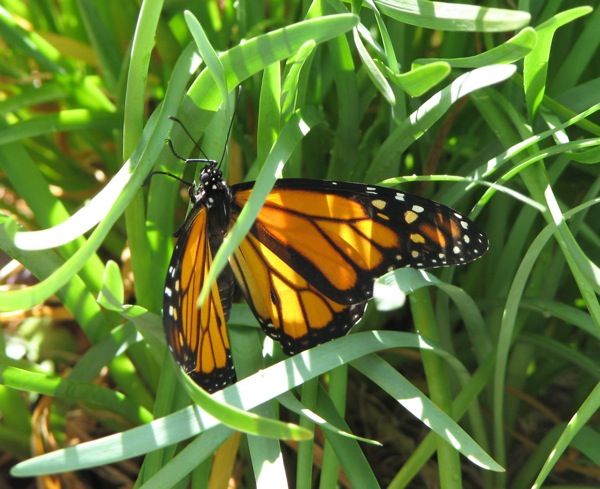
 |
by J. V. Siry |
|---|---|
The most imaginatively robust image of the post agrarian world the place of both origin and loss in our religious traditions is of course the garden.
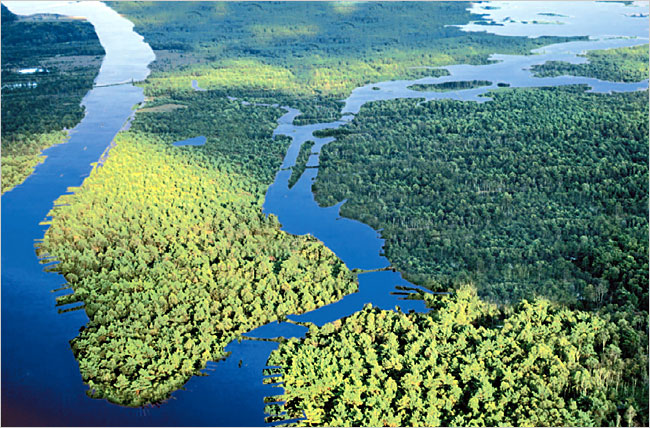
This is a deceptive question; there is more to any patch of plants than meets
the eye. A garden is a parcel of earth --a patch of tilled soil-- where you intend to plant something only
to discover a whole set of unintended lessons to be experienced before they
actually can be learned. Gardens have hidden gifts.
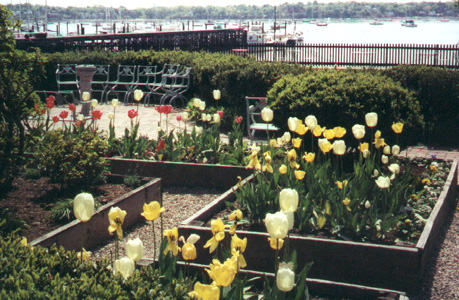 |
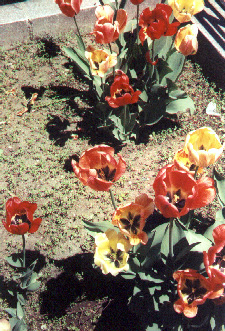 |
|
| Varieties of tulips growng in Salem, Mass. | ||
overview | starting up | mulch | maintenance | edible herbs | internationally | meaning | symbol of faith | index
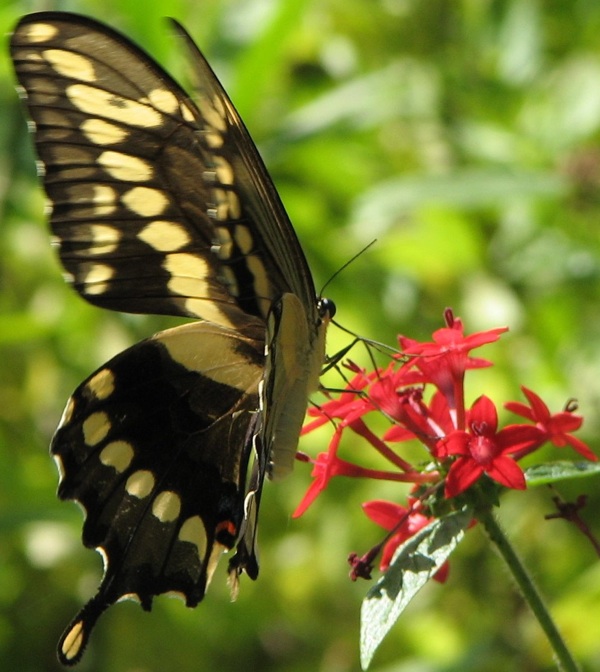 First an overview of what a garden can be is appropriate. Then some reference to what other people think about gardens is in order, because
we are prone to deceiving ourselves if we are not careful to define what a garden
is not. A garden is never an easy thing to undertake to grow. But before concluding
we should be clear about the opportunities that soil and climate afford anyone willing
to plant something. Finally we should investigate what other meanings a green garden
may have.
First an overview of what a garden can be is appropriate. Then some reference to what other people think about gardens is in order, because
we are prone to deceiving ourselves if we are not careful to define what a garden
is not. A garden is never an easy thing to undertake to grow. But before concluding
we should be clear about the opportunities that soil and climate afford anyone willing
to plant something. Finally we should investigate what other meanings a green garden
may have.
Any garden starts with a place, the soil, preparation, collection and planning.
The place 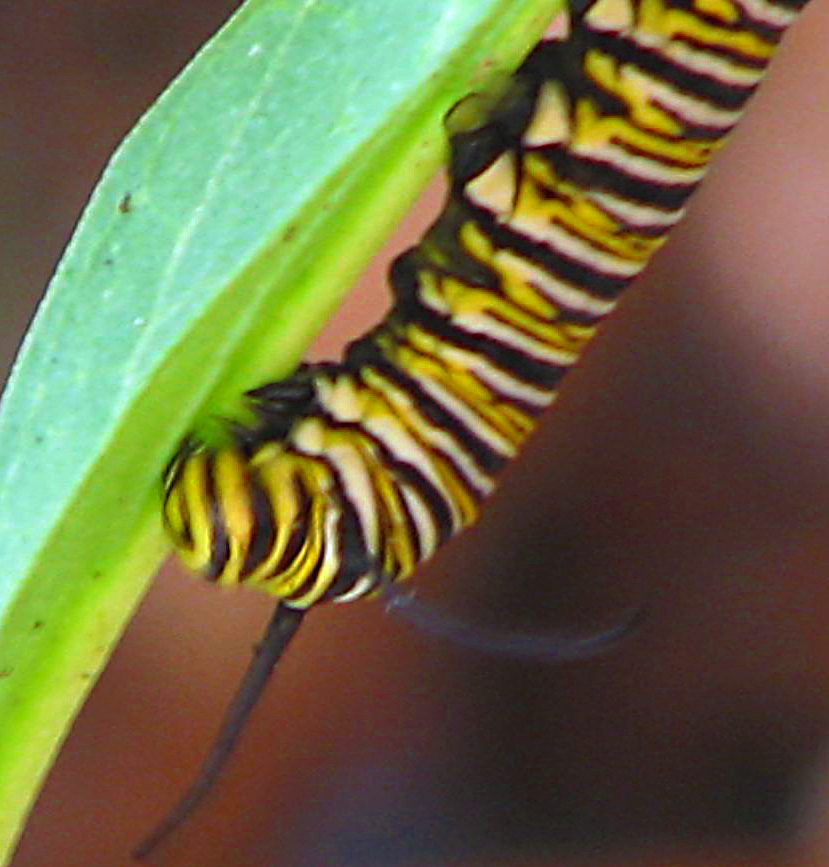 should be sunny, but if it is shaded then adjust what you want to
plant there to the available light. You have to get to know the place and the
effort to know any place begins --quite naturally-- from the ground up. The soil (silt, sand, clay,
or loam) is the real key to the success of your garden and the things you want
to raise in the garden. Without a careful attention to building up the soil
(meaning to enrich the ground with organic matter) anything you do will be harmed my nutrient loss,
water shortages, or stress due to inadequate soil moisture, nutrients, or symbionts and too many parasites.
Take for example what Rachel Carson wrote about the importance of the thing
most people call "dirt." She said that "the thin layer of soil
that forms the patchy covering over the continents controls our own existence
and that of every other animal on the land."
should be sunny, but if it is shaded then adjust what you want to
plant there to the available light. You have to get to know the place and the
effort to know any place begins --quite naturally-- from the ground up. The soil (silt, sand, clay,
or loam) is the real key to the success of your garden and the things you want
to raise in the garden. Without a careful attention to building up the soil
(meaning to enrich the ground with organic matter) anything you do will be harmed my nutrient loss,
water shortages, or stress due to inadequate soil moisture, nutrients, or symbionts and too many parasites.
Take for example what Rachel Carson wrote about the importance of the thing
most people call "dirt." She said that "the thin layer of soil
that forms the patchy covering over the continents controls our own existence
and that of every other animal on the land."
(Silent Spring, p. 55.)
This is why the preparation is the next crucially important step. First, collect
earth worms. As Raymond Dasmann reminds us "All these countless creatures living in the soil are busy, and their principal task is in the breakdown, decay, and recycling of the chemical constituents of organic matter." He also points out that certain building blocks of life are made available when "the recombination in various useful forms of the mineral components of the soil," takes place by "more than 25 million bacteria in a gram of topsoil." (Environmental Conservation, p. 185.) So keep the earth worms and beetles in a safe place with lots of good organic debris mixed in the
soil until you put them in your garden. The more leaves, cuttings, and other
dead things you can collect to put into a compost pile the better fort he worms to eat. In hot and
wet places the break-down of the soil's organic matter is so fast that it strips
the needed material from the garden faster than you may have the time for replacing
it. So insects like beetles, ants and bees can be very beneficial; but earthworms–as Darwin explained in detail–are vital to the success of your gardening
endeavors. Insects are, after all, responsible for the coevolution of flowering plants.
Gardens are a collection most often of the oldest and newest organisms to dominate the earth.
Charles Darwin spent nearly 40 years observing earthworms, meticulously recording their behavior, measuring the amount of soil moved through their activities, and evaluating their influence on soil fertility. In 1881 he published his findings on these creatures whom he considered essential cultivators of the earth's productive soils. He wrote in, The Formation of Vegetable Mould Through the Action of Worms..., that an "estimated ... 10.6 tons of materials are brought to the soil surface of each acre by earthworms," he had witnessed in England. ( C. Darwin, 1881 [1945 reprint]. The formation of vegetable mould through the action of worms with observations on their habits, 153 pp. Faber & Faber, London.)
Second, in preparation for a garden, build and keep adding to
a mulch pile. When it is full then spread it from the bottom of the pile onto
a thick layer in the garden, a day or so before you plant anything. Cover that
over with dead leaves and let it set until you are ready to transplant or plant
your seeds. Third you should start your seeds indoors, or in a protected place,
before transplanting the sprouted plants outside in the prepared ground. These
steps in anticipation of a full planting of your garden will assure that fewer
problems may occur when you try to raise more expensive plants. Some places
may benefit from the early planting of rye grass or clover a full month or two
before you plant anything else -- especially if you have no mulch, or poor soil,
or lack the necessary worms. The grass, clover or other suitable vegetation
can act as green manure and be plowed under before you plant the more desirable
things in the garden.
in preparation for a garden, build and keep adding to
a mulch pile. When it is full then spread it from the bottom of the pile onto
a thick layer in the garden, a day or so before you plant anything. Cover that
over with dead leaves and let it set until you are ready to transplant or plant
your seeds. Third you should start your seeds indoors, or in a protected place,
before transplanting the sprouted plants outside in the prepared ground. These
steps in anticipation of a full planting of your garden will assure that fewer
problems may occur when you try to raise more expensive plants. Some places
may benefit from the early planting of rye grass or clover a full month or two
before you plant anything else -- especially if you have no mulch, or poor soil,
or lack the necessary worms. The grass, clover or other suitable vegetation
can act as green manure and be plowed under before you plant the more desirable
things in the garden.
This care you ought to take before laying out a garden is crucial to its success. You really can’t plant a vegetable garden in the shade. There are many physical factors to consider. For example it is important to understand the climate of your area and not plant until the last frost free day of the year has passed and long enough to assure a crop before the first full day of freezing weather has passed. This research into climate will also let you see the importance of water for and drainage from your garden. For too little water is as great a problem as too much water and knowing when the rainy season is becomes an essential element in good gardening. {These issues of sunlight, climate and water are all examples of the ecological rule of thumb called: "the Law of the Optimum"}. Just as important as your research into the climate, the kinds of plants that grow best, and the sorts of competitors that new plants are bound to bring into this plot of ground that you call your garden, is the honest assessment of yourself.
If you don't have a lot of time, and have no money and no water -- you 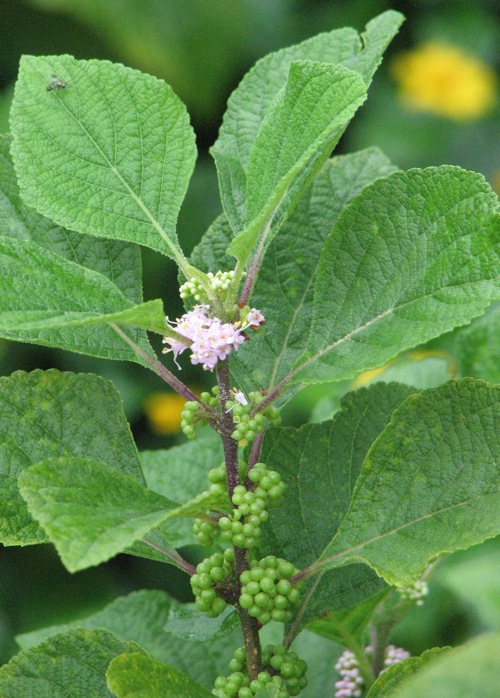 might
think of planting native plant species that tolerate --even thrive-- when neglected!
The low maintenance, low budget, low moisture garden has a great deal to recommend
it. First this moisture scarce sort of landscape is called a "xeriscape"
and it conserves a vital resource, water. Things like azaleas, camellias, tomatoes,
even potatoes and beans, require a good deal of water, lots of attention and
a level of intervention that you may find overwhelming. Roses and orchids are
the time consuming, expensive and water intensive crops of the gardener's world.
If you don't have the time, then you should think seriously of cactus, native
plants, or easier to care for crops. Now that you realize that you are as much
a part of this garden as the garden is a part of you; you are ready to realize
your dreams in the scheme you have laid out for your plot. Know where the sun
is at all hours of the day with respect to the features in the garden. Be aware
of the moist areas and the drier areas of the garden. Inspect the slope, the
depth and the contours of where you plant. With these things in mind your scheme
or plan should give you some assurance of what sun loving plants will go where
and that other shade tolerant plants will go somewhere else. By now you are
ready to experience the great outdoors!
might
think of planting native plant species that tolerate --even thrive-- when neglected!
The low maintenance, low budget, low moisture garden has a great deal to recommend
it. First this moisture scarce sort of landscape is called a "xeriscape"
and it conserves a vital resource, water. Things like azaleas, camellias, tomatoes,
even potatoes and beans, require a good deal of water, lots of attention and
a level of intervention that you may find overwhelming. Roses and orchids are
the time consuming, expensive and water intensive crops of the gardener's world.
If you don't have the time, then you should think seriously of cactus, native
plants, or easier to care for crops. Now that you realize that you are as much
a part of this garden as the garden is a part of you; you are ready to realize
your dreams in the scheme you have laid out for your plot. Know where the sun
is at all hours of the day with respect to the features in the garden. Be aware
of the moist areas and the drier areas of the garden. Inspect the slope, the
depth and the contours of where you plant. With these things in mind your scheme
or plan should give you some assurance of what sun loving plants will go where
and that other shade tolerant plants will go somewhere else. By now you are
ready to experience the great outdoors!
Gardens have meant many things to those who have labored in them. 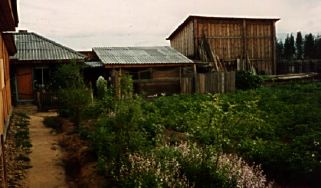 For many people
a garden is a useful place to grow the things we want to eat. A vegetable garden
--called victory gardens in Europe and America during the two world wars--
is always a place to grow the fresh plants you are unable to buy in the food
stores. Russian people today in cities try to plant summer gardens with food
crops to eat during the long, cold winters. A vegetable and fruit garden is
an edible landscape. But many folks in cities particularly prefer the smaller size and subtle value
of an herb garden, where cooking spices and seasonings are grown that make the vegetables from
an edible garden more tasty.
For many people
a garden is a useful place to grow the things we want to eat. A vegetable garden
--called victory gardens in Europe and America during the two world wars--
is always a place to grow the fresh plants you are unable to buy in the food
stores. Russian people today in cities try to plant summer gardens with food
crops to eat during the long, cold winters. A vegetable and fruit garden is
an edible landscape. But many folks in cities particularly prefer the smaller size and subtle value
of an herb garden, where cooking spices and seasonings are grown that make the vegetables from
an edible garden more tasty.
Like the herb garden, a flower garden is a variation on the edible landscape.
Besides being edible, flowers attract the earth's oldest farmers, the beneficial
insects, like wasps, bees, butterflies and lady bugs. Such gardens in India
have had medicinal uses for two millennia or more. The flowers associated with
your garden are esthetically -- that is pleasing to look at -- important but
they are also necessary to attract the pollinators or the predators of those
insects that may eat your vegetables before you do! Flower gardens are beautiful
and functional if well planned and well executed.
 In realizing how important your attention is to a healthy garden, be sure to
recall that gardens have an added virtue. The best and worst of ground may nourish
or extinguish the greatest of gardens. This suggests that any garden is also
a school yard for those who want to learn more about their world. To learn how
the world works you can go to any forest or river. In every country, the world
over, people have always brought the stream to the plants in a garden or to
the trees in an arbor where the lessons of growth, care and decay can be learned
by anyone much closer to home. Again, Dasmann insists that "One important reason for adding organic fertilizers --compost-- to the soil is the stimulation they provide for the growth and proliferation of soil microorganisms." He notes that contrary to industrial suppliers that "Chemical fertilizer alone may not be sufficient for this purpose and may in fact inhibit it." (Dassman, p. 185) So here we see that by beginning with a parcel of soil we learn a simple chemical truism too much of something can be as useless as too little of the same thing. Few lessons are more important than this "law of the optimum," that any garden can teach the attentive gardener.
In realizing how important your attention is to a healthy garden, be sure to
recall that gardens have an added virtue. The best and worst of ground may nourish
or extinguish the greatest of gardens. This suggests that any garden is also
a school yard for those who want to learn more about their world. To learn how
the world works you can go to any forest or river. In every country, the world
over, people have always brought the stream to the plants in a garden or to
the trees in an arbor where the lessons of growth, care and decay can be learned
by anyone much closer to home. Again, Dasmann insists that "One important reason for adding organic fertilizers --compost-- to the soil is the stimulation they provide for the growth and proliferation of soil microorganisms." He notes that contrary to industrial suppliers that "Chemical fertilizer alone may not be sufficient for this purpose and may in fact inhibit it." (Dassman, p. 185) So here we see that by beginning with a parcel of soil we learn a simple chemical truism too much of something can be as useless as too little of the same thing. Few lessons are more important than this "law of the optimum," that any garden can teach the attentive gardener.
There are rare glimpses in any plot of ground concerning the many centuries it has taken for all creatures to co-adapt to one another. For example, agricultural advisors, Jennifer A. Ramsay and Stuart Hill insist that, "While nature works slowly in the production of topsoil, often over centuries.... In the absence of a rich population of soil animals, 500 to 1000 years may be required to create an inch of topsoil." (THE AGRICULTURALIST'S FRIENDS by Jennifer A. Ramsay and Stuart Hill,1998) Here too, in a garden, vigilant folks can see into the changing conditions of life and how living beings possess adaptive responses that may be seen by anyone with more than a passing interest in any evergreen woods. One can even hear the crickets, birds, bees and mammals that call out from any wooded lot to us signaling that often what we do see depends on what is hidden from view in the ground at the roots of the shade trees.
There are spectacular botanical gardens wherein the curious eye may learn about the geography of the world. In certain national botanical gardens, plants originally from Turkey such as tulips, or China such as roses, or Cactus from North America, thrive side by side with Euphorbia's from Africa. Where plants have been properly researched and labeled any garden becomes an international common ground for cultivating variety amidst the conditions native to any place you are.
But to better understand how the world works with you in it, go to a garden! Today gardens are planted on roofs of buildings, beside highways or over abandoned dumping areas. Here any garden offers you many interesting clues to how the human family may or may not be in functional cooperation with the natural world. For you to see the world with you in it --tending to the soil and water enough to really care for a place-- linger in any long enduring garden. There you can see plainly the small role that we, each person, may play in an effort to restore even a small patch of Earth's vegetation. Wild areas are important but they can't become the sole measure of successful ventures in restoring the biological wealth of your particular neighborhood. The lesson then of this garden school yard is “cooperate or die.” Said more poetically, "nourish the planet or perish."
The instructive aspect of gardening is what the grand old man of conservation,
George Perkins Marsh, called "geographical regeneration." By that
Marsh revealed that the only civilizations to have averted disaster are those
that learned how to renourish their surrounding landscape. Even then their success
was not guaranteed. Marsh knew, from experience, certainly that if we don't
nourish the land it can not replenish the things that we need, like food, fuel
or fiber. One could almost say the hidden meaning of gardens for an urban dweller,
or a civilized person, is "Nourish the land or perish!"
What started out as a garden, in which to grow food, or flowers or some ornamental
plants, has turned into a lesson of how to understand yourself in the larger
world. That is one reason why the French writer Voltaire admonished us to tend
to our own gardens if it is wisdom you seek. “As Candide returned to his
farm he reflected deeply on the Turk’s remarks.... ‘I also know,’
said Candide, ‘that we should cultivate our gardens.’” (Voltaire,
Candide, in Knoebel, p. 129.) But beyond even that, there is a lesson that is
universal -- for all time. In any garden we are beset with both our own ambitions
and our own limitations. For that reason Voltaire knew there were valuable lessons
to learn even by staying home.
As the 19th century journalist Charles Dudley Warner wrote, gardens have a charm
beyond the experience of our mere words to capture. He wrote in 1870, "To
own a bit of ground, to scratch it with a hoe, to plant seeds, and watch the
renewal of life --this is the commonest delight ... the most satisfactory thing
a man can do." A century later Rachel Carson explained how we need to clearly
recognize the value of soil to our daily existence and what better way than
to feel this in a garden, underfoot and under fingernails? She realized -- as
others had done before her -- that unless you plant today for what you need
tomorrow, there will be no reliable future. A garden is an investment lesson
of what to do now if you want anything left for later.

Finally remember always that the garden is a symbol. For Christians, Hebrews and Moslems it is that
original state of human oneness with God the creator who placed us in a garden
from which to draw on for our every need. The Garden of Allah or the Garden
of Eden is the birthplace of humankind and the origin of our curiosity about
how this world was made to work as it does. In the Torah the initial commandment is to keep the garden. In other religions the grove or
the garden is the place of enlightenment, or refuge, or place of creation. Gardens
have a symbolic importance for us because we are descended from people who lived
on tilled soil. The Masai believe we are the daughters and sons of trees growing
in the pastoral landscape we may call the garden. Beneath a tree (Ficus religiosa)
in Sarnath, India, we are instructed, Siddartha sat and was transformed, emerging
there as the enlightened Buddha. In Babylon more than six millennia ago pleasure
gardens with wildlife in them were called "paradise." We are, if you
chose to plant something, the carriers of an ancient legacy with the meaning
in our hands of how to nourish a plant with soil, water, worms and mulch. Once
we have started the seed, with care and good fortune, the plant will do the
rest and grow to the delight of our fellow humans, birds and insects.
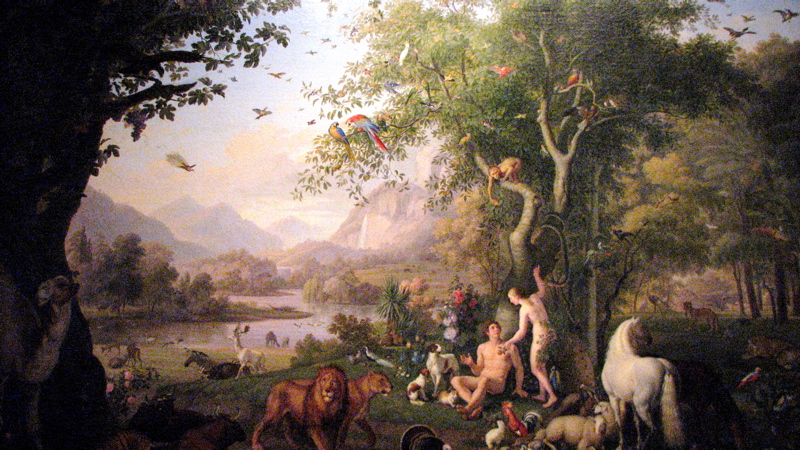
Even if you do not survive from growing food in your garden by your own efforts, gardening is a
constant reminder of something beyond ourselves. It is a reminder of a functional
necessity wrapped around a native beauty and infused with a delight that is
well beyond our own limited little lives. Whether we fully comprehend it or
not, going into a garden is an enchanted experience because it means we are
traveling into a place where our ancestors became what they were, and then passed
along those traits to us. For you or us to sustain life, as any gardener begins
to see, we need the soil. That is because in the soil are the origins of all
life on earth. The Sanskrit word for humans and humus (mulch or detritus material)
derives from the same root word: dghum.
With our gardening, what began as a modest endeavor, once it involves your interest, effort, and imagination, has become the start of an unending voyage of world discovery without ever having left the place you tend and the time you spend in your garden.
![]()
(March 1996; revised 2004, revised 2006, revised 2012)
Index to the above essay.
Things we found in a garden amidst all of the plants are:
overview | starting up | mulch | maintenance | edible herbs | internationally | meaning | symbol of faith